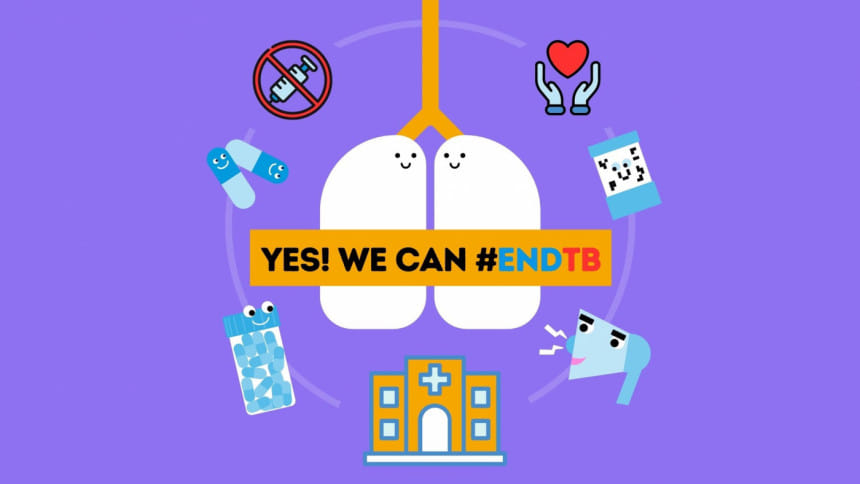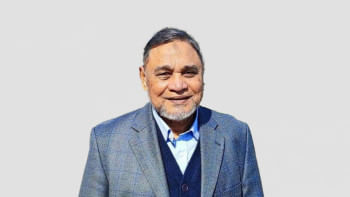World TB Day 2024: Yes! We can #EndTB!

Millions around the globe commemorate World TB Day today. The theme of World TB Day 2024, "Yes! We can end TB!"—conveys a message of hope that getting back on track to turn the tide against the TB epidemic is possible through high-level leadership, increased investments, and faster uptake of new recommendations of World Health Organisation (WHO). Following the commitments made by Heads of State at the UN High Level Meeting in 2023 to accelerate progress to end TB, this year's focus shifts to turning these commitments into tangible actions.
WHO is urging action on several fronts on World TB Day to ensure the fulfillment of the promises made to end TB:
• High-level leadership and action to end TB. Now that we have strong high-level commitments made by world leaders in the political declaration of the second UN High-Level Meeting on the fight against TB, we must unite forces to translate these commitments rapidly into action. This includes implementing the WHO Director-General's flagship initiative for 2023–2027.
• Sustainable investment of resources, support, care, and information is vital to ensuring universal access to TB care and for research. More investments towards supporting the rollout of WHO-recommended TB preventive treatment options, shorter TB treatment regimens, rapid molecular diagnostics and tests for TB infection, and other innovations and digital tools will lead to improvements in health outcomes and save millions of lives. Importantly, investments in research and innovation are essential to fast-track efforts to reach the end TB targets.
• Scaling up access to TB preventive treatment (TPT) and screening services for TB disease is a priority, as this creates efficiencies and can lead to massive health and financial gains. Integrating TB screening with TPT increases opportunities to protect people from falling ill with TB, as well as saving a large number of additional lives. To help countries scale up access to TB preventive treatment, one of the key targets in the UN High Level Meeting political declaration. WHO is releasing an investment case on scaling up the rollout of TB preventive treatment on World TB Day.
• Ending TB requires concerted action by all sectors, communities, and civil society to provide the right services and support and create a safe environment in the appropriate place and at the right time. Poverty, inequality, malnutrition, comorbidities, discrimination, and stigma are major drivers of the TB epidemic. Therefore, the health system alone cannot achieve progress in combating TB and its underlying causes. WHO is working closely with countries to support the adoption of the Multisectoral Accountability Framework and calling for strengthening multisectoral engagement and accountability.
• Tackling health inequities to ensure health for all. We are putting the spotlight on the importance of tackling health inequalities, including stigma and discrimination, to ensure health for all. People with TB are among the most marginalised and vulnerable and face barriers to accessing care. WHO is calling for global action to address health inequities for people with TB and other diseases.
"We hope that all these joint actions can help drive the TB response to save lives and achieve the global TB targets," said Dr. Tereza Kasaeva, Director of WHO's Global TB Programme. "As requested in the second UN High Level Meeting political declaration, WHO will continue to provide global leadership for the TB response, working in close collaboration with all stakeholders until we reach and save every person, family, and community impacted by this deadly disease. "We must keep the momentum going to stop the spread of this ancient disease and reach those affected with the care they need."
Source: World Health Organisation

 For all latest news, follow The Daily Star's Google News channel.
For all latest news, follow The Daily Star's Google News channel. 



Comments